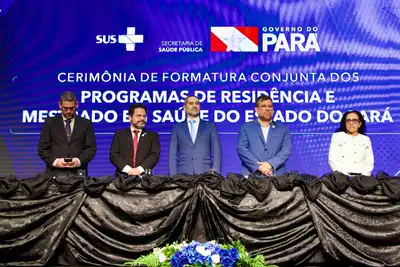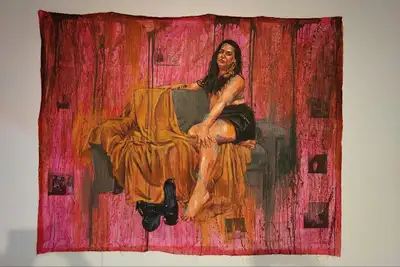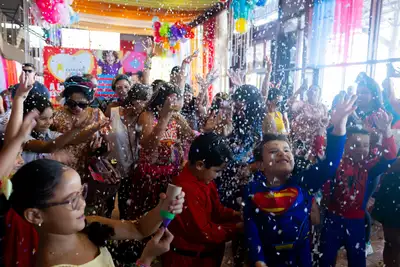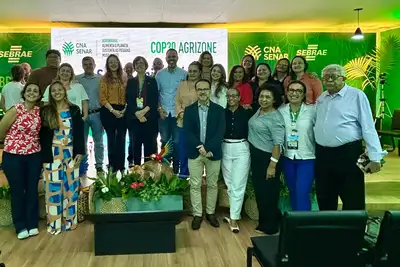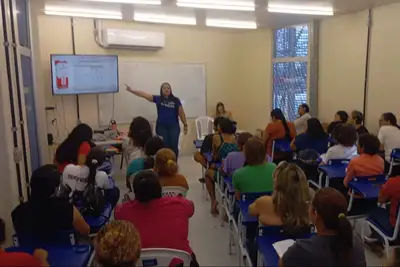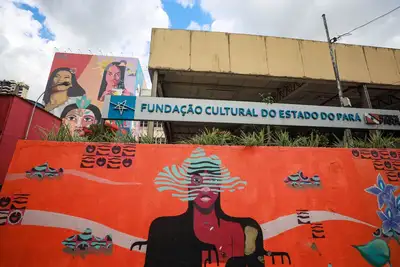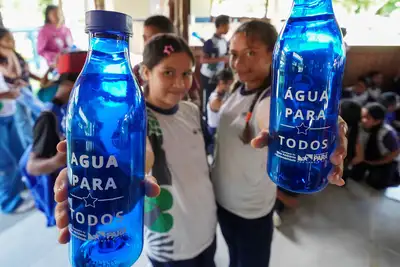On its 4th day, Techzone presents technological solutions focused on bioeconomy and sustainable development
The programming of the fourth day highlighted projects that integrate science, innovation, and traditional knowledge to boost the forest economy
With actions aimed at valuing Amazonian knowledge and the sustainable use of natural resources, the Government of Pará promoted, this Thursday (13), the fourth day of Techzone, an event held at the Guamá Science and Technology Park (PCT), in Belém, as part of the preparation for the 30th United Nations Conference on Climate Change (COP30), which will be hosted in the capital of Pará in November 2025.
With the theme Research, Development, and Innovation (R&D) and Bioeconomy, the programming highlighted initiatives aimed at strengthening sustainable production chains in the region, valuing traditional knowledge, and generating income from science, technology, and innovation.
Initiatives with female leadership and valuing traditional knowledge
One of the actions presented was the Amazon Woman Seal, which recognizes and values the role of women in the Amazonian bioeconomy. The initiative highlights the work of local producers who combine innovation, sustainability, and income generation.
According to Amanda Rosa, a researcher on the project, the proposal is to promote visibility and opportunities for these women. “The main goal is to bring visibility and encouragement to all the producers here in the state,” she stated.
The researcher also emphasized the importance of traditional knowledge as the foundation of developed knowledge. “Innovation, manufacturing, and traditional knowledge are the basis of all forms of knowledge that are being generated. I believe we can improve, as long as we recognize these knowledges from the communities,” she added.
Technological innovation applied to education in the forest
The debate “Technology born in the forest and its impacts on Amazonian education” brought together experts to discuss how ancestral knowledge can drive new educational solutions. Participants included professor and CEO of Inteceleri, Walter Júnior, and professors Marcos Seruffo, Roberto Limão, and Diego Cardoso.
Inteceleri, a resident company of PCT Guamá, presented the MiritiBoard VR, virtual reality glasses made from miriti, a typical palm tree of the region. The innovation combines cutting-edge technology with traditional raw material, resulting in an accessible product for educational purposes.
“Virtual reality glasses usually cost over R$ 2,500 in the market. We managed to develop an alternative based on miriti, which is part of our culture, and now it has become a highly technological, accessible instrument connected to Amazonian identity,” explained Walter Júnior.
Research transforms açaí waste into sustainable paper
Another highlight was the Amazoncel project, coordinated by professor Lina Bufalino from the Federal Rural University of the Amazon (UFRA), funded by the Amazon Foundation for Support of Studies and Research (Fapespa).
The initiative enabled the creation of the first cellulose and paper laboratory in the Amazon region, as well as the inclusion of the subject in the curriculum of the Forestry Engineering course. The proposal developed a methodology for producing sustainable paper from açaí seed fibers, contributing to the reduction of irregular disposal of fruit waste.
“This waste, degrading in nature or in our cities, emits CO₂. But with this Amazonian valorization, we can generate income and develop new products from an abundant and local raw material,” highlighted the researcher.
State Government reinforces investments in bioeconomy
According to Marcel Botelho, president of Fapespa, the investments in science, technology, and innovation promoted by the Government of Pará are transforming local realities. “They generate impact, much more than academic, social, community, and in people's lives,” he stated.
He highlighted the importance of Techzone as a visibility space for projects supported by the State and the Guamá Foundation, acting in different production chains and boosting the Pará bioeconomy.
The Secretary of State for Science, Technology, Higher, Professional, and Technological Education (Sectet), Victor Dias, also emphasized the strategic relevance of the investments. According to him, the creation of the Bioeconomy Observatory will be a milestone by bringing together, in a single digital platform, data from secretariats and universities about products, research, and actions aimed at the sector.
The tool, which will be officially presented during COP30, aims to expand access to information, encourage sustainable businesses, and foster research in the area. “We want to show that the Amazon is the way to sustainably develop our planet,” highlighted Victor Dias, adding that the proposal is to transform Belém into a bioeconomic valley, where science and traditional knowledge walk together towards building a greener future.
Text: Kelvyn Gomes/PCT Guamá






